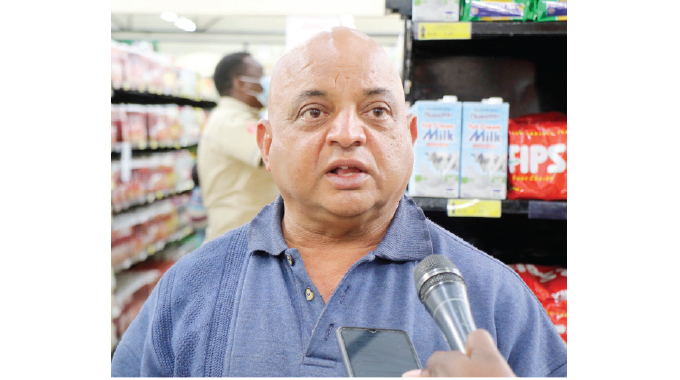Ramp up production, substitute imports – Modi

Nqobile Bhebhe, Senior Business Reporter
THE disruption in global supply chains emanating from the ongoing Russian-Ukraine conflict is a grand opportunity for local companies to ramp up production to substitute imports and bridge the supply gap in regional and international markets.
Industry and Commerce Deputy Minister, Raj Modi, said this in an interview as he encouraged local producers to stop mourning about challenges alone but to also position themselves for available opportunities.
He acknowledged that the local market was feeling the pinch of the conflict due to shortages of some products but said the situation also presents a good chance for companies to service new markets.
“The economic crisis is global.
First, we had Covid-19, which had devastating effects and now we have the Russia-Ukraine conflict,” said Deputy Minister Modi.

Covid-19
“Although we don’t feel the direct impact of the war, physically that is, economic effects are being felt.
Supply of commodities have been interrupted and prices are increasing.
Although it will take time to subside, we have to deal with it.”
The Deputy Minister, who is a prominent Bulawayo businessman, stressed the need to scale up domestic production.
“Yes, local industries have to scale up production and support the retail market.
This is the opportunity to grow.
However, we have certain items that we have to import,” he said.
“We are not a fully self-sufficient country where we have everything.
For instance, fuel.
We have to import fuel, which is a very key component in the manufacturing cycle.
However, fuel prices are rising globally, hence prices increase here.”
Responding to queries from industry that the recent six-month suspension of import duty on basic commodities will choke local production, Deputy Minister Modi said the local industry should be calm as the effects will be negligible.
To cushion consumers, rice, flour, cooking oil, margarine, salt, sugar, maize meal, milk powder, infant milk formula, tea (whether or not flavoured), petroleum jelly, toothpaste, bath soap, laundry bar, and washing powder will now be imported duty-free.
“I don’t see that having a huge impact. Not everyone wants to go outside the country and buy goods.
“Some products can be duty-free but when you factor in transport costs it becomes expensive.
So, when all this is considered, our prices are still low,” he said.
To further buttress his call for calm, Deputy Minister Modi said he was forced to cancel an order in South Africa after prices also shot up there.
“Two days ago, I got a message from South Africa that prices are also going up, be it cooking oil, rice and mealie-meal,” he said.
“I had an order there, so when they said prices have changed I had to halt the order.
So, for an ordinary person to frequently travel to Musina (South Africa) for basic goods only, how much will that cost? So, I don’t think the import relaxation will affect local production.
Also, not everyone wants to go and buy goods in South Africa,” he said.
Finance and Economic Development Minister, Professor Mthuli Ncube, implored the industry to shift from retooling mode to meaningful production to help stabilise the prices of goods and services.

Finance and Economic Development Minister, Professor Mthuli Ncube
Prices have of late been increasing, further squeezing ordinary people whose incomes have been eroded by resurgent inflationary pressures.
— @nqobilebhebhe








Comments